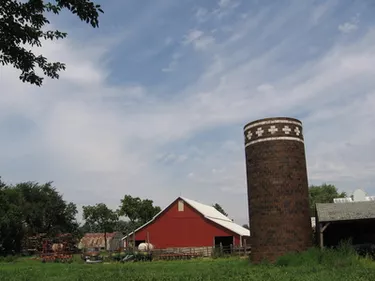
A farmer can choose from several different business entities for his operation. Many begin as a sole proprietorship but eventually see the advantages of a forming a limited partnership, limited liability company (LLC) or even a full-fledged corporation. One size does not fit all when it comes to business entities. Each situation is different, but forming an LLC for farming can have distinct advantages.
Self-Employment Tax
Video of the Day
Forming an LLC can provide a great benefit when it comes to self-employment tax. Although many people love the freedom of working for themselves, when April 15 rolls around and it's time to pay taxes on the fruits of your labor, the shock can be severe. Forming an LLC can help. For example, Farmer A is a sole proprietor declaring a $50,000 net profit on his farm income on which he pay a self-employment tax of 15 percent. Then he decides to form an LLC and transfers the real estate to it. The LLC charges the farmer $40,000 annual rent to use the property, which is no longer reported as personal active income but as passive income to the LLC and subsequently, the farmer. The net effect is that it reduces the amount he has to pay self-employment taxes on to $10,000.
Video of the Day
Social Security
If a farmer is between the ages of 63 and 70 and receiving Social Security benefits, forming an LLC could allow him to preserve those benefits. Assume a net income of $50,000 from the above example. This would put the farmer well above the amount of income allowed by Social Security, triggering a reduction or elimination of benefits. By forming an LLC and transferring $40,000 to passive income from rent, the farmer reduces his actual earned income to only $10,000, which is a small enough amount so he can continue to collect Social Security. Remember this situation is hypothetical and may not apply to everyone. You should check with a tax professional before making changes to your business entity.
Future Plans
An LLC can provide more stability for the farming operation since it exists as an eternal business entity that continues even if one or more partners meet an untimely death. A chain of succession can be designated within the LLC. In addition, by designating a gradual transfer of ownership percentages, it is possible for a farmer to gift the farm to the next generation within the tax protected structure of an LLC.